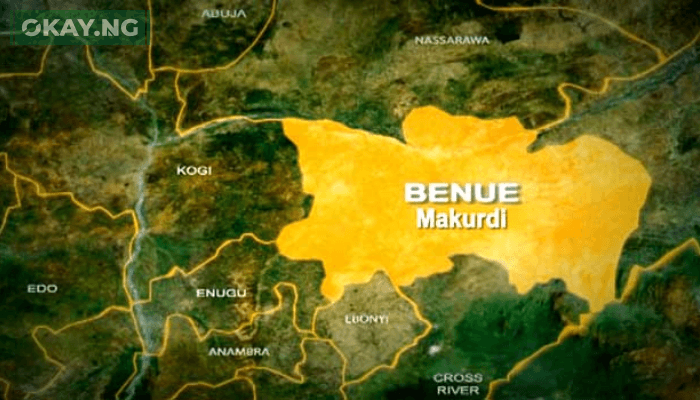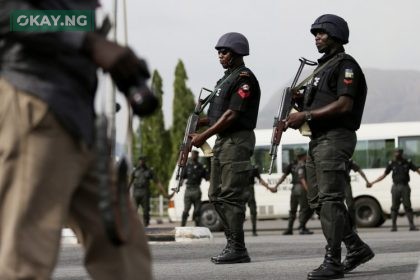The Yelewata massacre, which unfolded in June 2025 in Benue State, Nigeria, stands as one of the most harrowing and tragic events in the country’s recent history. This brutal attack, reportedly carried out by suspected Fulani herders, resulted in the death of over 100 people, with some estimates suggesting the toll could be even higher. The massacre not only devastated a community but also exposed deep-rooted issues of ethnic conflict, governance failure, and insecurity that continue to plague Nigeria’s Middle Belt region. This article provides a detailed analysis of the massacre, its causes, the parties responsible, and the urgent need for national reflection and action.
The Tragedy Unfolds: What Happened in Yelewata?
Between the night of June 13 and early June 14, 2025, the village of Yelewata in Benue State was subjected to a coordinated and violent attack. According to eyewitness accounts and local reports, a large group of suspected Fulani herders launched an assault on the village, overwhelming local defenses and security personnel. The attackers reportedly employed diversionary tactics against police forces, drawing their attention away while systematically targeting homes, market stalls, and barns.
What makes this massacre particularly horrific is the manner in which many victims were killed. Several were trapped inside burning buildings—homes and market stalls where internally displaced persons (IDPs) had sought refuge from previous violence. The use of petrol to set these structures ablaze resulted in many people being burned alive. Survivors described scenes of unimaginable horror, with families caught in flames and entire neighborhoods reduced to ashes.
In addition to the loss of life, the attackers deliberately destroyed barns containing vital food supplies. This act of economic sabotage threatens to worsen food insecurity in a region already struggling with poverty and displacement. The destruction of livelihoods means that survivors face not only grief but also the daunting challenge of rebuilding amid scarcity.
The Human and National Impact
The immediate human cost of the Yelewata massacre is staggering. Over 100 lives lost in a single night is a tragedy that reverberates far beyond the village itself. Families have been shattered, children orphaned, and communities traumatized. The psychological scars of such violence will linger for generations.
Beyond the personal suffering, the massacre has broader implications for Nigeria’s national stability. Benue State lies in the Middle Belt—a region that has long been a flashpoint for violent clashes between predominantly Christian farming communities and mostly Muslim Fulani herders. These conflicts are often rooted in competition over land and resources, but they are also inflamed by ethnic and religious differences.
The Yelewata massacre thus represents not just a local tragedy but a symptom of a wider national crisis. It highlights the fragility of peace in Nigeria’s diverse society and the urgent need for effective conflict resolution mechanisms.
Who Is Responsible?
Determining responsibility for the Yelewata massacre involves examining multiple layers of accountability. The direct perpetrators are widely identified as suspected Fulani herders. These herders have been involved in recurrent clashes with farming communities across Nigeria’s Middle Belt, driven by competition over grazing land and water, exacerbated by climate change, desertification, and population pressures.
However, the massacre also exposes systemic failures in governance and security. Reports indicate that security forces were either overwhelmed or absent during the attack, raising serious questions about the preparedness and responsiveness of Nigerian law enforcement agencies. Survivors and local leaders have criticized the government for failing to protect civilians despite prior warnings and intelligence about potential attacks.
Human rights organizations, including Amnesty International, have condemned the Nigerian authorities for their inadequate response. They argue that the government’s inability to prevent such massacres not only emboldens perpetrators but also deepens mistrust among communities.
Moreover, political factors may also play a role. Some analysts suggest that local and national politicians have sometimes exploited ethnic divisions for political gain, undermining efforts at peacebuilding. The lack of effective dialogue and reconciliation mechanisms further entrenches cycles of violence.
The Role of Climate and Resource Scarcity
An often overlooked but critical factor in the Yelewata massacre is the role of environmental stress. Nigeria’s Middle Belt has experienced increasing desertification and unpredictable rainfall patterns, forcing herders to move southward in search of pasture. This migration brings them into conflict with farming communities who depend on the same land for cultivation.
Climate change thus acts as a multiplier of existing tensions. As resources become scarcer, competition intensifies, and the risk of violent clashes escalates. Without sustainable environmental policies and conflict-sensitive land management, such violence is likely to continue.
National and International Responses
The Yelewata massacre has elicited widespread condemnation both within Nigeria and internationally. Nigerian President and other political leaders have expressed sorrow and pledged to bring perpetrators to justice. Security forces have reportedly launched investigations and increased patrols in the region.
International bodies, including the United Nations and the African Union, have called for urgent measures to protect civilians and address the root causes of the conflict. The Pope’s public prayers for the victims and condemnation of the massacre as a “terrible massacre” have drawn global attention to the crisis.
Civil society groups and community leaders have also mobilized to provide relief to survivors and advocate for peace. However, many stress that humanitarian aid alone is insufficient without lasting political solutions.
What Needs to Be Done?
The Yelewata massacre is a wake-up call for Nigeria. To prevent future tragedies, a multi-faceted approach is essential:
Strengthen Security: The government must improve the capacity and responsiveness of security forces in vulnerable regions. This includes better intelligence gathering, rapid response units, and community policing initiatives that build trust.
Justice and Accountability: Perpetrators must be identified and prosecuted transparently to restore faith in the rule of law. Impunity only fuels further violence.
Conflict Resolution and Dialogue: Sustainable peace requires dialogue between herders and farmers, facilitated by neutral mediators. Land use agreements, compensation mechanisms, and joint resource management can reduce tensions.
Address Environmental Challenges: Policies to combat desertification, promote sustainable agriculture, and support climate adaptation are critical to reducing resource scarcity.
Political Will and Governance: Leaders at all levels must reject ethnic and religious divisiveness and commit to inclusive governance that respects the rights of all communities.
Humanitarian Support: Immediate relief for survivors, including food, shelter, and psychosocial support, is vital to help communities recover.
Conclusion
The Yelewata massacre is a disheartening national catastrophe that lays bare the complex and interwoven challenges facing Nigeria’s Middle Belt. While the direct responsibility lies with the attackers, the failure of security forces and the absence of effective conflict prevention mechanisms share the blame. Addressing this tragedy requires urgent, coordinated action from the Nigerian government, civil society, and the international community.
Only through justice, security reforms, dialogue, and sustainable development can Nigeria hope to heal from this wound and prevent similar catastrophes in the future. The memory of those lost in Yelewata demands nothing less than a renewed commitment to peace and national unity.













